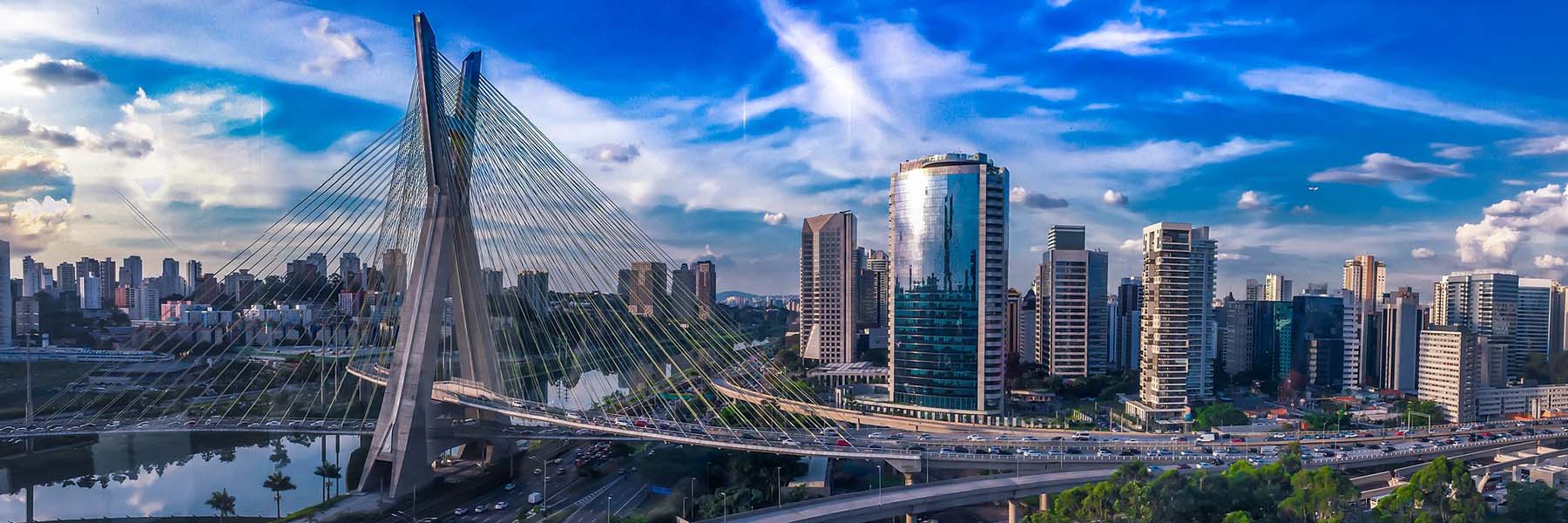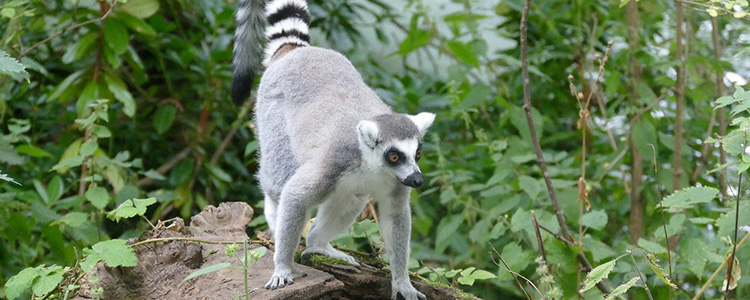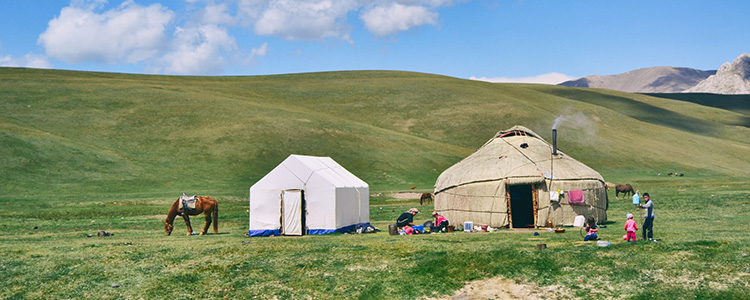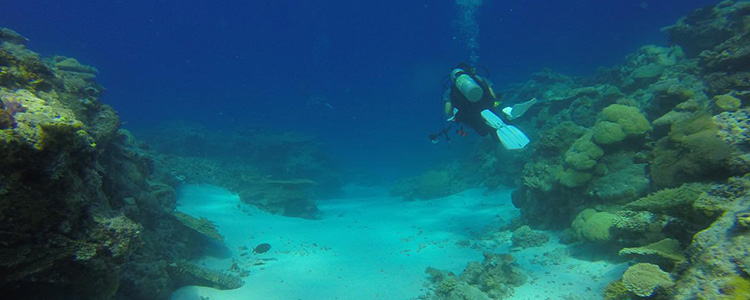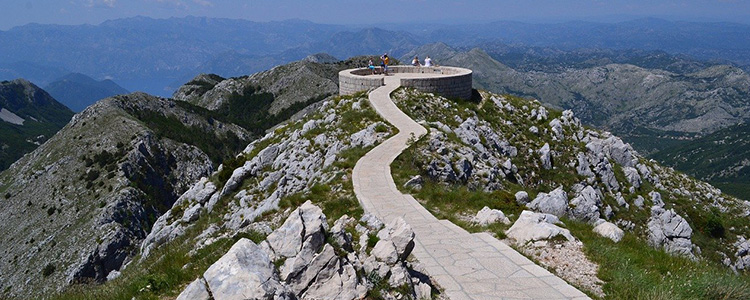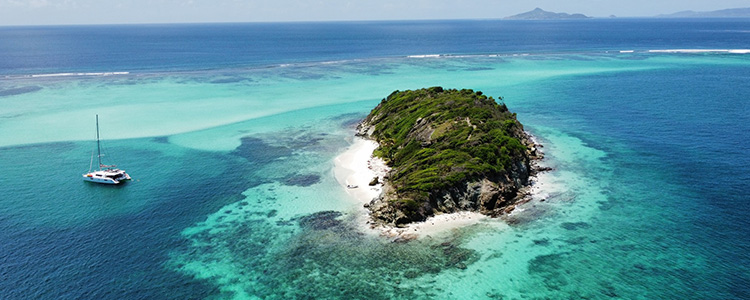Brazil Country Bundle: suggestions, stories and tips
Content about Brazil on WorldSupporter
 Habits and customs in Brazil
Habits and customs in Brazil
Habits and customs in Brazil
- Brazilians are famous for their festive Spirit, especially Carnival, a pre-Lenten celebration known for its extravagant parades and costumes, combined with infectious samba music.
- Brazilians love music - Beyond Samba, Brazil boasts a rich musical landscape with genres like energetic Forró, soulful Bossa Nova, and pulsating Axé.
- Capoeira is an unique Afro-Brazilian martial art that blends acrobatics, dance, and music, is another famous aspect of Brazilian culture.
What are the best recipes in Brazil?
- Brazilians eat hot meals twice a day and have many regional dishes.
- In a restaurant, the portions are often for two people, so it is useful to ask how many people the dishes on the menu are for. It is not necessary to tip in restaurants, this is usually already included in the receipt.
- A visit to a typical Brazilian barbecue restaurant or “churrascaria” is recommended. Here you usually pay a fixed price for ''as much as you can eat''.
- Popular in Brazil is the comida por quilo, a self-service buffet.
- Feijoada is a stew with different types of meat.
- Many snack bars offer salgados, these are fried snacks.
What are the best drinks in Brazil?
- Cafezinho (coffee) in Brazil is very strong and is offered in small cups.
- People drink little tea, but a milkshake with fruit juice is extremely popular (vitaminas).
- It is recommended not to drink tap water, but to buy it in the supermarket.
- Well-known beer brands in Brazil include Brahma, Antarctica and Skol. These are comparable to our pilsner.
- The national spirit is cachaça, made from sugar cane. This drink is the basis of the popular caipirinha, a drink made from cachaça, lots of sugar, lime and crushed ice.
- Guarana is a soft drink known for its stimulating effect.
What are the notable holidays and festivities in Brazil?
- Carnival in Rio de Janeiro – The dates of the celebration vary each year, but it always starts on a Friday and ends on a Wednesday. The parades in Brazil are world famous for their samba music, dancers and beautiful costumes. Definitely something to put on your bucket list: Carnival in Rio.
- Festa de Iemanjà – February 2, The goddess Iemanja belongs to the Candomblé religion in Brazil. In Salvador, people go to the beach dressed in white and throw offerings into the sea for the goddess.
- Tiradentes – April 21, Tirandentes took responsibility for the protests against the Portuguese for high taxes. He started a call for liberation and is seen as a national hero in Brazil.
- Boi Bumba – In June, Brazil has an atmospheric folk festival based on local myths and legends. The large puppets, parades, dance and music come from Portuguese, Indian and African influences. Festa Junina – June/July, this is the celebration of the birth of John the Baptist and in the northeast also the end of the rainy season. The festival is often celebrated in a wooden hut with a thatched roof.
- Oktoberfest – The largest beer festival is of course held in Germany. Did you know that Blumenau in Brazil comes in second place? The city was discovered by the German Hermann Bruno Otto von Blumenau. Inspired by the Oktoberfest at home, it is also celebrated every year in Brazil.
- Independence Day – On September 7 in 1822, Brazil became an empire and independent from Portugal. On this national holiday, parades take place throughout the country.
- Fiesta de Nossa Senhora Aparecida – October 12 is the day to honor the holy Black Mary, the patron saint of Brazil.
- Proclamation of the Republic – November 15 is a national holiday. Brazil became a republic on November 15, 1889, through a coup d'état by a group of military men and republicans.
 Expat and emigration interviews: the story of Jan (Belgium) who worked for Foreign Affairs and reopened a consulate in Brazil
Expat and emigration interviews: the story of Jan (Belgium) who worked for Foreign Affairs and reopened a consulate in Brazil
Meet Jan, he worked for Foreign Affairs and reopened a consulate in Brazil. Read more about his experiences below.
Who is Jan?
- Jan worked for the Belgian Ministry of Foreign Affairs and reopened a consulate in Brazil.
- Read more about his experiences below through the interview below.
What do people need to know about you to understand your story?
- I was sent out by my employer, Foreign Affairs to reopen a Consulate in Brazik.
- I did not really prepare.
What is your life like, what kind of work or activities make you feel you are really “at home” in Brazil?
- Basic knowledge of the language is an indispensable requirement to feel at home in Brazil, as few people speak another language (e.g. English).
How does your daily routine differ from that in your home country?
- Brazilians take their time for everything. They often arrive late for appointments or don't show up at all. You can never get straight to the point but first answer questions about family and health. Everything is very complicated and agonizingly slow with a leaden bureaucracy.
How were your cultural and social interactions in Brazil?
What was your first encounter with a local?
- Brazilians are very warm and friendly people, however, one should not take them too seriously. They are spontaneous and there is curiosity about where you are from, what you are doing in the country, etc.
Do you have any tips for meeting people?
- Very easy. Learn a few words of Portuguese and you will be warmly welcomed everywhere.
What is the best or most inspiring thing about your emigration?
- Let go of your European institution of rules, agreements and order or you'll be annoyed to death.
What is the funniest or most painful misunderstanding you have experienced because of language or cultural differences?
- Everything continually goes haywire. There is always a signature or a stamp or something missing. Once I was not allowed on a tourist bus with my own daughter (possible child abduction), when I showed up with a self-signed letter that it was ok, I was allowed on the bus (surreal).
Have you adopted local customs?
- Let go of European social rules.
How do locals react to you living and working here now?
- Brazilians are smooth and warm in their interactions and generally admire Europe.
Are there any customs in social interaction that you found difficult to understand or had to get used to?
- Failure to keep appointments.
How does friendship here differ from how it is perceived in your home country?
- Brazilians seem superficial, but if you can accept them as they are, you have friends for life.
What are the challenges in Brazil?
Have there been times when you doubted your choice/emigration, or what disappointed you?
- Bureaucracy, bureaucracy, bureaucracy.
What would you do differently next time and what would you like to give others with the same idea?
- Mentally prepare for everything to take an awful long time and don't take people too seriously.
How do you deal with homesickness/loneliness?/What do you miss most?
- Brazilians are bon vivants, loneliness hardly exists in this country.
Are there things you appreciate more about your homeland now that you are here?
- The sense of organization, the seriousness with which things are handled.
How are the practical rules & what are the issues in Brazil?
How do you deal with the bureaucracy in your new country?
- Suffering. Problems with administration can often be solved if you happen to know the right people. Try to make friends. Everyone has an acquaintance or family member who can help you through a more informal avenue to help solve your problem. Brazil is the most bureaucratic country I have been.Economists talk about the ‘Brazilian cost’ by which is meant all the additional costs you have to charge to get something done (clearance fees, taxes, administrative costs, bribes, etc.) An additional disadvantage is that everything is done in Portuguese. Few people speak English.
How did you find a suitable place to live?
- Through a real estate agent.
Was it difficult? What are the biggest cost differences between this country and your home country?
- Owner and tenant both have to pay a comission fee to the real estate agent. This amount can be high. The tenant is obliged, when leaving the rental property to have it repainted at his expense, at least as far as the inside is concerned.
What did you learn about insurance, taxes and other financial obligations abroad?
- Without your registration with the CPF (tax authorities) you won't get anywhere.
Have you used local health care (general practitioner, specialist, dentist, etc.) and what stands out to you?
- If you are well insured you can use an excellent private health service).
What is similar or totally different from Belgium health care?
- Two tracks : excellent care for those who have the money , third-rate care for those who rely on the public health service.
What is useful for others to consider?
- Do not rent a house, but an apartment. A home is too dangerous because of numerous break-ins and robberies. Apartments offer better security. Do not wear jewelry or show signs of wealth. In addition to your actual wallet, keep a wallet with a small amount of money in your pocket and give it when you become the victim of a robbery. Do not try to be a hero, because a human life is not worth much in Brazil.
- The police are very quick to reach for their weapon. Never argue with them if you notice they are agitated, wait until they have calmed down. I was once threatened with a gun by four policemen, until they realised I was a foreigner and had nothing to do with a theft I had just committed....
- If you have the means, engage an errand boy to take care of all kinds of business for you, (bank, mail, electricity bills, condominium fees pay etc, because everywhere you bump into endless lines of people waiting)
What kind of business have you established?
- Consulate General.
What is the bureaucracy like in the country you are in?
- Belgian bureaucracy times 10.
What local traditions or rituals have inspired or touched you?
- Carnival.
How do you balance working, relaxing and enjoying your new surroundings?
- In Rio de Janeiro, the weekend starts on Friday afternoon. Laze on the beach or walk in the “ Floresta de Tijuca”
How is it to communicate in Brazil?
Have you learned the local language and if so, how?
- Yes. First some lessons with assimil and then just being immersed in a Brazilian language bath. A must in this country.
How do you stay in touch with home?
- Email.
What are some communication problems you have encountered?
- Without a basic knowledge of the language, you won't get anywhere.
What have you learned?
- That we Europeans often take life far too seriously.
- As a diplomat, indeed, you have to love travelling, adventure and change to last in the diplomatic profession. You pay a high price to your social life.
- Just when you feel like home, it's time to leave again and leave behind the friends you've made. An interesting career, but I still wouldn't recommend it to everyone.
 Brazil: Updates & Travel
Brazil: Updates & Travel
Travel in Brazil?
- Brazil is the largest country in South America and is known for samba, soccer and the world-famous carnival. Its people are proud of their rich history and diverse cultural backgrounds. It has over 7,000 km of tropical beaches, a hodgepodge of cultures, extraordinary cities and variety of landscapes. With the Amazon, Rio de Janeiro, the famous Iguaçu Falls and the largest swamp area in the world, Brazil offers adventures for all travelers. Brazilians are known for their hospitality and openness. They are willing to help you with anything, even more than necessary.
- Brasilia - It is a very modern city and popular among architecture lovers. Characteristic of the city are the divided zones, for example, the government with the parliament building has its own section. The futuristic buildings are UNESCO World Heritage Sites. The most famous building is the Catedral de Brasília, known for its extraordinary shape. In fact, the crown of thorns of Jesus Christ can be easily recognized in it.
- Rio de Janeiro - The city is world famous for its carnival, samba and beaches. Christos Redenter is the pride of Brazil and a symbol of peace. Sugarloaf Mountain offers stunning views at sunset and several beaches are home to many subcultures. At night there is a vibrant nightlife with many bars and nightclubs.
- Manaus - This city is located in the middle of the Amazon and can only be reached by boat. From Manaus many boat trips are organized and tours are offered. These include climbing tall trees and spotting pink dolphins. There is also an Amazon theater in Manaus and you can buy many souvenirs.
- Waterfalls of Foz de Iguaçu - On the border of Brazil, Argentina and Paraguay are the most beautiful waterfalls in the world. The Devil's Throat is the most famous part of the falls, as this is when the water falls down a 700-meter long gorge. On a trip through the nearby jungle, you will find more than a hundred different species of birds.
- Feira Hippie in Rio de Janeiro - At this hippie market you will find handmade clothes, jewelry, food and other fun stuff. The market can be found every Sunday at Ipanema beach.
- Diving at Fernando de Noronha - At this island group you will find a beautiful coral reef and be among dolphins, rays and turtles. There is also a war wreck on the bottom and the islands boast some of the most beautiful beaches in Brazil.
- Shopping in São Paulo - People from all over Brazil come here to store. There are several malls and on weekends there are also many flea markets.
- Sunset in Jericoacoara - At this surf spot, you have a fantastic view of the sunset from the sand dunes. In June, the sunset is the most beautiful. It is possible to rent a baby carriage to go on the beach or to join the fishing boats. There are also many bars and restaurants along the dirt roads.
- Safari in Pantan - This plain is the best place to spot wildlife. It is much easier here than in the Amazon. During the safari you will encounter jaguars, pumas and monkeys on land. Among the grass of the swamp you will find crocodiles and even anacondas. Pantanal is though an uninhabited area for humans, you are literally in the wild.
- Be prepared for the huge visible differences between rich and poor.
- And the possible amount of theft, violence and crime in the big cities, especially in Rio de Janeiro.
Updates Brazil
- More about Brazil, updates and contributions, see the link below.
 How does the healthcare system work in Brazil, and which travel insurance, health insurance or expat insurance do you need?
How does the healthcare system work in Brazil, and which travel insurance, health insurance or expat insurance do you need?
- How does the healthcare system work in Brazil?
- How is the quality of health care in Brazil?
- How is the public health system in Brazil (SUS)?
- How is the private health care system in Brazil?
- How is the general practitioner arranged in Brazil?
- How is the dentist arranged in Brazil?
- How is the maternity care arranged in Brazil?
- How safe and unsafe is a trip or stay in Brazil?
- Which work and travel insurance policies are suitable for short and long stays in Brazil?
- What emigration and expat insurance can you take out for Brazil if you are going to live there for a while?
How does the healthcare system work in Brazil?
How is the quality of health care in Brazil?
- Brazil has a universal public health care system called Sistema Único de Saúde (SUS).
- There is also very large private sector, which is widely used by residents with higher incomes or additional insurance.
- The SUS offers free health care to all residents, including foreigners living or traveling in Brazil.
- Virtually all major Brazilian cities have good health care facilities.
- In remote areas, care can be more limited, sometimes poorer quality and/or unsanitary.
How is the public health system in Brazil (SUS)?
- Anyone living in Brazil, including expatriates, emigrants and refugees, can access the public system. You do need a Brazilian ID number and migrant registration card, which you can use to buy an SUS card.
- The quality of care is uneven in public institutions, mainly due to overcrowding, lack of resources in rural areas and long waiting times for non-emergency treatment.
- In public institutions, it can be difficult to communicate in English. In private institutions, English is more often spoken.
- There is a shortage of general practitioner care in public health facilities, as most general practitioners work for private clinics.
- Many expats find that public health care does not always match their expectations or needs.
- Pharmacies in Brazil are usually found in urban centers or they are attached to a hospital. Medications are kept as affordable as possible (often with no co-payment) so that a large portion of the population has access. Pharmacies are usually open until 10 p.m.; some have 24-hour service.
- There are walk-in public health clinics (UBS, Basic Health Units) where you can go mainly for non-urgent care or when you do not have a family doctor. You do need an SUS card for this.
How is the private health care system in Brazil?
- Many expats, despite the higher costs, choose private health care in Brazil. The quality is better to excellent and the facilities are more modern.
- Partly for this reason, it is important to have a good expat/emigrant insurance policy that provides access to this better standard.
- In addition, there are always things you will have to deal with as an expat or emigrant that are not covered “by default” (think repatriation, care by good English-speaking doctors, wider treatment choices, etc.) An (additional) private coverage can fill in the gaps and offer a wider choice of coverage.
How is the general practitioner arranged in Brazil?
- There is a major shortage of family doctors in public healthcare because most family doctors work in private healthcare.
- If you are affiliated with the SUS, you can search for a family doctor via the database of the Ministry of Health.
- Most emigrants go for family doctors via private clinics. There are many of them and you can often get good recommendations from other expats!
How is the dentist arranged in Brazil?
- Dentists are called “dentista” and you can find them in both public health facilities and private clinics.
- SUS also offers free dental care, but wait times can be very long and the language barrier is also a thing.
- Private dental care is very good, not too expensive and the wait times are shorter. Many people even come to Brazil just for this service.
How is the maternity care arranged in Brazil?
- Maternity care is offered through the public healthcare system SUS or through private clinics.
- Prenatal checkups are extensive and include multiple appointments, ultrasounds, blood tests, etc.
- In the public sector, this is free, but waiting times are often long. In private care, you will find more flexibility.
- Most deliveries take place in the hospital; more than 50% via cesarean section.
- After delivery, mothers usually stay in the hospital for several days.
- There is no structural home maternity care. So make sure you arrange for someone to do this for you in advance.
How safe and unsafe is a trip or stay in Brazil?
What should you pay attention to in terms of safely in Brazil?
- Brazil has very high crime rates compared to many other expat destinations. There are large disparities between rich and poor, so there is a lot of petty crime. There is also a chance of more violent incidents from Brazil's many organized crime groups.
- Favelas, or slums, are neighborhoods in and around cities where you will find many houses close together. They are found in all major cities and are best avoided as expats because the situation there can be dangerous and unpredictable.
- Car hijackings are also common, so make sure you always put your belongings out of sight and keep the doors locked.
- Among other things, travel through river areas on the border with Colombia, Peru and Venezuela is not recommended because of heavy crime and criminal groups.
- You can also be mugged in public transport. So better not wear obviously expensive things.
- There are frequent protests and demonstrations. The situation here can sometimes get out of hand. Avoid these gatherings if you can and follow the local news for updates.
- Always take a copy of your passport with you.
- Brazil has floods in the rainy seasons that can disrupt infrastructure.
- In the dry season there are often intense forest fires that are very dangerous and unpredictable.
What should you look out for in terms of diseases in Brazil?
- Several tropical diseases are present including Dengue, Malaria, Chikungunya and the Zika virus. So make sure you protect yourself well against mosquitoes!
- Drinking water and sanitary conditions in Brazil vary greatly depending on where you stay. In cities, access to safe water is often better regulated than in rural or remote areas.
- In Brazil, among other things, you can get Schistosomiasis, a parasitic infection caused by contact with fresh water contaminated with parasites. It is particularly common in the northeast and in the Amazon.
What should you pay attention to in terms of traffic in Brazil?
- Brazil is known for its high rate of traffic accidents, mainly due to aggressive driving, poor road conditions and lack of enforcement of traffic rules.
- Driving after dark, especially in rural areas, can be very dangerous because of poorly lit roads or other vehicles without lights.
- There is strict legislation regarding drunk driving (the Lei Seca), but it still occurs.
- Roads in cities can be quite good, but in rural areas are often significantly less so.
Which work and travel insurance policies are suitable for short and long stays in Brazil?
- Is the trip to Brazil and your return sufficiently covered? Are you sufficiently covered before, during and after your activities? Which insurance best suits your trip and your activity? Read more about insurances for abroad on JoHoinsurances.org.
What emigration and expat insurance can you take out for Brazil if you are going to live there for a while?
- It is not mandatory to have your own insurance when moving to Brazil, but it is recommended to be able to use private care. Read more about insurances for abroad on Expatinsurances.org.
 Packing list for Brazil, travel insurance for Brazil, and taking your belongings
Packing list for Brazil, travel insurance for Brazil, and taking your belongings
To pack and bring to Brazil
What to take with you to Brazil: spotlighted
- Documents: a passport with 6 months validity and copies.
- Money: a debit card to withdraw money, but also some Brazilian real, because you certainly don't want to go to the ATMs in the evening!
- Care: sunscreen with a high factor - the sun in Brazil is like an enthusiastic dog: always present and sometimes a bit too much. Aftersun can't hurt either.
- Outdoor and handy items: cap or hat and sunglasses.
- Clothing: light and breathable clothing that protects you well from the sun. A nice going-out outfit certainly can't hurt either, the locals like to dress up. Last but not least, a good swimming outfit!
- Protection: a raincoat is essential, for the rain showers that can suddenly occur, or for the gigantic waterfalls that you are going to visit. The same goes for a rain cover for your backpack.
- Shoes: nice sandals or slippers and hiking boots for the jungle trips. Medicines and travel kit: a small first aid kit with plasters, painkillers and ORS (dehydration is a thing). Good mosquito repellents.
- Safety: money belt and safe bag for your stuff.
- Technology and equipment: the power sockets vary throughout the country - usually plug type C & N. A world plug is therefore essential.
What are some other options for packing as well?
- Reusable water bottle with filter, because tap water is technically drinkable, but often tastes strange.
- International driving license for that cool road trip.
- A bit of courage to haggle at the market.
- Quick-drying towel for your beach and jungle adventures.
- Sarong for the beach, super multifunctional.
- White clothing in case you accidentally get invited to a Candomblé ritual or New Year's Eve on the beach in Rio (you get bonus respect for it).
What should you know when you bring your stuff with you to Brazil?
- Safety measure for travelling around Brazil.
- When are the festivities and what is the dress code.
Are there mosquitoes in Brazil?
- Yes, mosquitoes are a big problem in Brazil. Everywhere in the country, but even more so in the Amazon and Pantanal.
- Mosquitoes in Brazil spread many diseases such as dengue, malaria, zika and yellow fever.
- It is wise to take anti-mosquito measures, and to be extra careful during the rainy season, in places with stagnant water and in poorer areas of cities.
Are there sandflies in Brazil?
- Brazil has the highest number of sandfly species in the world and you can get very sick from them.
- It is difficult to say where you will and will not encounter them, but in general there are fewer sand flies in higher altitudes and less humid areas.
- So it is important to protect yourself well.
Can you buy DEET, or other mosquito repellents, in Brazil?
- The most effective way to protect yourself in Brazil is to cover yourself.
- You can buy all kinds of anti-mosquito products in every pharmacy and large supermarket. So it’s okay if you forget it in all your packing stress.
Can you buy a joint or weed in Brazil, or take it with you to Brazil?
- Yes, you will see people smoking weed – on the beach, at festivals, on the streets in alternative neighborhoods, but it is illegal!
- It’s all a gray area again, because in 2024 the court in Brazil has decriminalized marijuana use for Brazilians, but that does not mean it is legal. It is also unclear how foreigners are treated and the police can also accuse you of dealing or selling weed if you have weed on you.
- You are not allowed to take it with you anyway, so leave that stash at home if you don’t want to go on a one-way trip.
 Brazil: selection of contributions by WorldSupporters - Bundle
Brazil: selection of contributions by WorldSupporters - Bundle
Content about Brazil shared by WorldSupporters
 Brazilië: selectie van blogs en bijdragen van Wereldsupporters - Bundel
Brazilië: selectie van blogs en bijdragen van Wereldsupporters - Bundel
Selectie van blogs en bijdragen van Wereldsupporters over Brazilië
- 1034 reads



 Brazil
Brazil